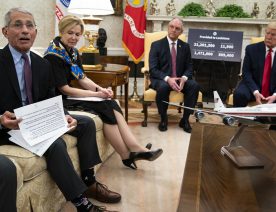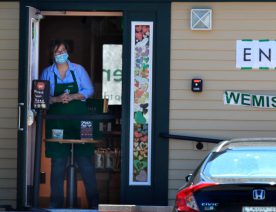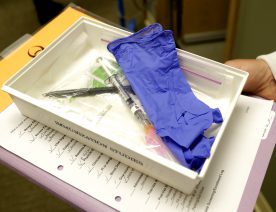
As all 50 states start to re-engage sectors of their economy, most Americans continue to say the national economy is in poor condition and many are feeling financial effects of the coronavirus pandemic.
When restrictions are lifted, reconnecting with friends and family, getting a haircut, and shopping for fun are at the top of many people’s agenda. But many are apprehensive about re-engaging in activities that draw a crowd, like attending movies, concerts, or sporting events, using public transportation, or even going out to bars and restaurants.
People’s post shutdown plans depend on what they did before the outbreak. Overall, 38% say they would attend religious services. But among people who attended services at least once a month before the coronavirus outbreak, 67% say they would return to their church, synagogue, or mosque if restrictions were lifted. Fifty-two percent of those who ate out at least once a month before the outbreak say they expect to head to a restaurant or bar.
Still, even among those that regularly engaged in activities that draw a crowd, like sporting events, concerts and movies, or using public transportation, fewer than half plan to return to them in the short term once restrictions are lifted.
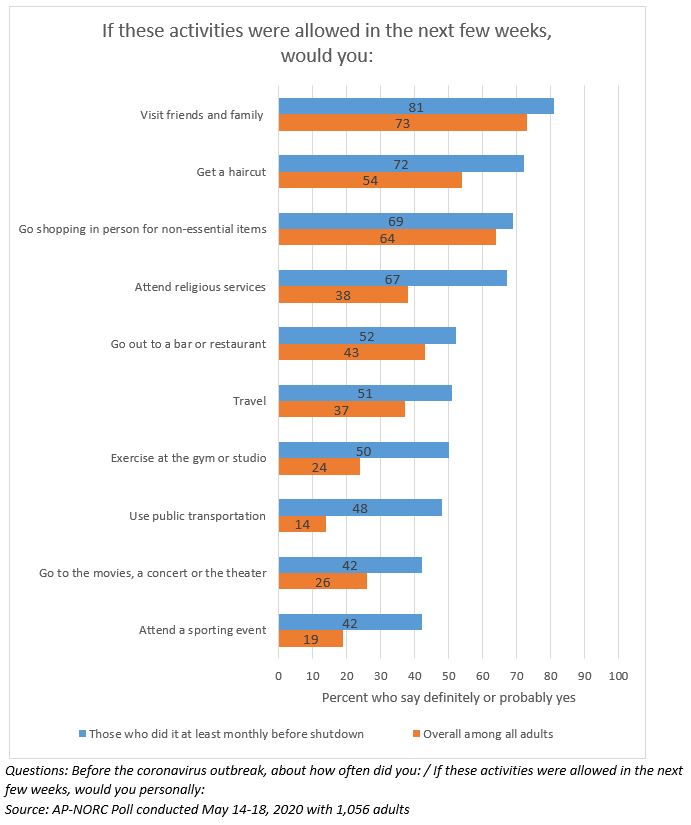
The public’s outlook on the U.S. economy which has declined dramatically in the wake of the coronavirus outbreak, appears to have leveled off. Twenty-nine percent describe the national economy as good, the same as in April, though down from 67% in January.
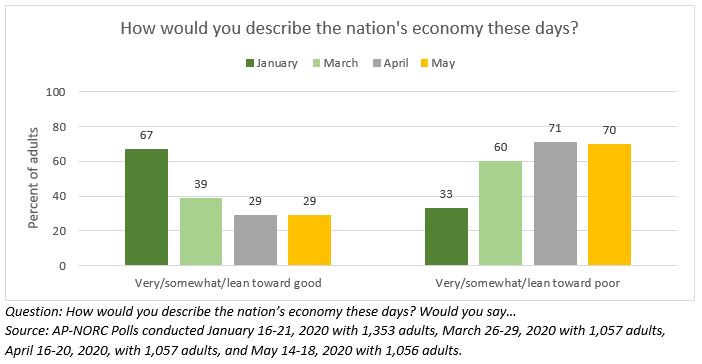
Trump’s handling of the economy has always compared favorably with his overall job performance, and his handling of other issues. While that remains the case, his approval rating on the economy has dropped to its lowest level in months.
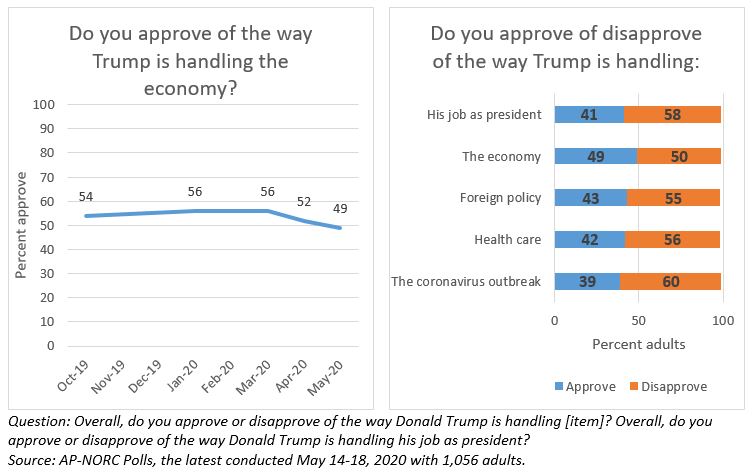
Many Americans are starting to feel the effects of the economic downturn and report facing economic pressures with lost wages and trouble meeting financial obligations as a result of the pandemic.
Because of the coronavirus outbreak, 49% of Americans say they or someone in their household has lost wages either through being laid-off, having a wage or salary reduction, working fewer hours, or having unpaid time off. And 25% report that they have been unable to pay a credit card bill, make a housing payment, or pay some other type of bill. The number of people who lost wages or have trouble meeting financial obligations is not significantly different from last month.
Less affluent Americans are facing more economic pressure. Those with annual household incomes under $50,000 are more likely to say they are falling behind with bills.
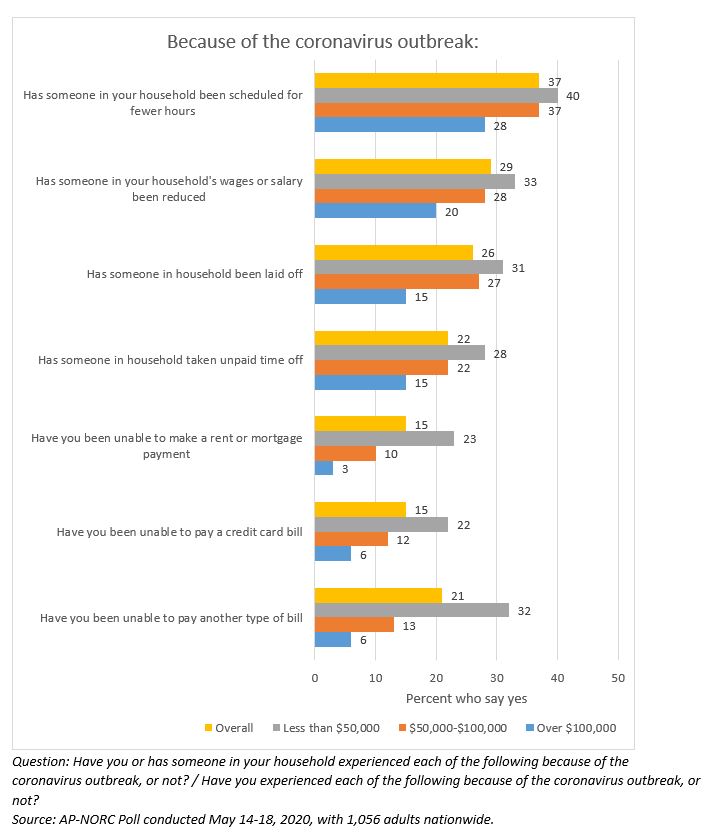
Of those who say they or someone in their household has been laid off, 30% do not expect that person to get their job back, and 65% think there is a chance of going back. Five percent say the laid off person is already back at work.
Still, 66% say their household’s financial situation is good, and 37% expect their personal finances will improve or stay the same in the coming year.
The nationwide poll was conducted May 14-18, 2020 using the AmeriSpeak® Panel, the probability-based panel of NORC at the University of Chicago. Online and telephone interviews using landlines and cell phones were conducted with 1,056 adults. The margin of sampling error is plus or minus 4.2 percentage points.


